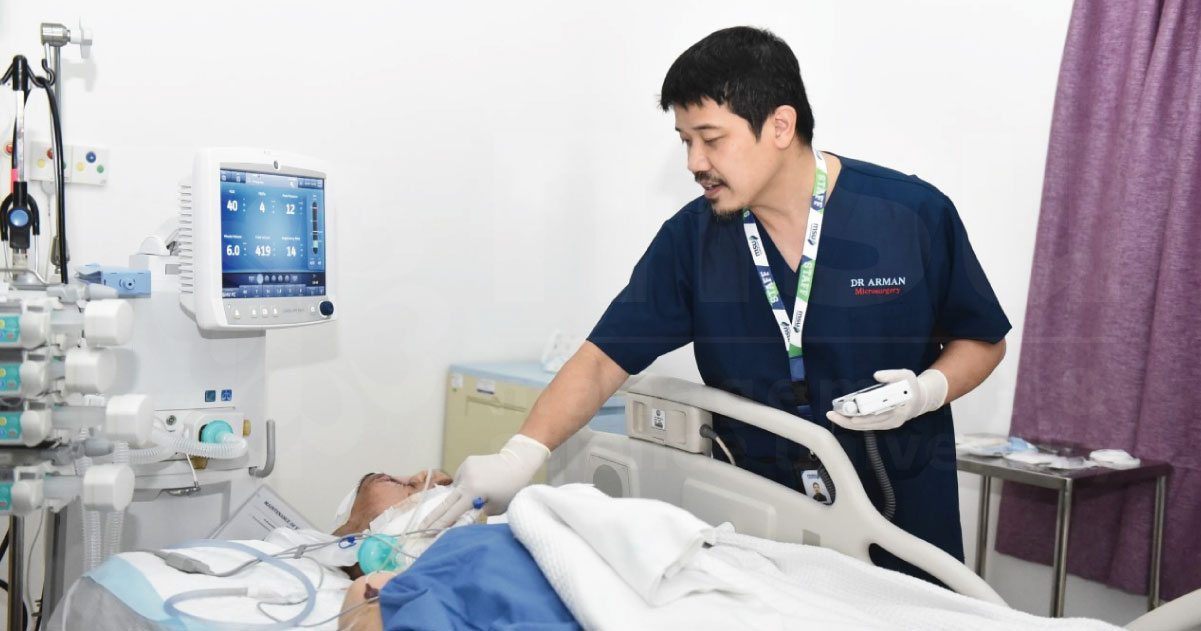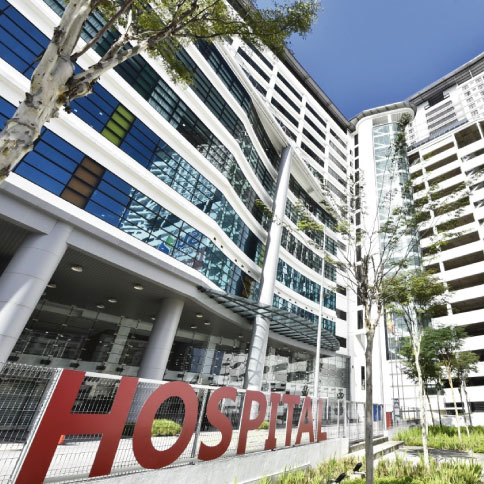

Breast cancer is indiscriminate. Though its occurrence is rare in men, it can affect any gender with equal ease.
Once considered an illness largely of the West, it is advancing in developing worlds. Whilst approximately fifty-six percent of women diagnosed with breast cancer will die of the disease in low-income and under-developed regions, the number rings up a far lower twenty-four percent in developed nations.
According to the Malaysia Cancer Registry data published in 2019, breast cancer is the topmost common cancer accounting for nineteen percent of all cancers detected between 2012 and 2016 -- affecting almost 22,000 patients. Its incidence is the highest among the Chinese, followed by the the Indians and the Malays; with overall lifetime risks of 1 in 22 in the Chinese, 1 in 23 in the Indians, and 1 in 30 in the Malays.
The main treatment for breast cancer is surgical removal of the affected tissues, and the extent of the surgical treatment depends on the stage of the disease. In the very early stage, lumpectomy or wide local excision may be sufficient. At a later stage, mastectomy or removal of all breast tissues will be required; in which the patient will lose the chest's shape, figure, and balance.
Some patients will experience more than a physical setback. Their emotion, confidence, and psychology may also be affected. Fortunately, alleviating the anxiety or returning their self-confidence is possible through a rebuilding of the breast mound and shape.
Studies show that patients who underwent immediate breast reconstruction post-cancer surgery fare better psychologically and have better self-esteem. Immediate reconstruction post-mastectomy, known as ‘skin-sparing mastectomy’, allows much of the breast skin to be preserved. It also brings the benefits of less complication and cost effectiveness as both the mastectomy and the reconstruction are done in the same admission.
Delayed breast reconstruction is usually performed after completion of adjuvant therapies such as radiotherapy and chemotherapy; usually around two years after the treatment, to ensure complete freedom from disease with no recurrence of the cancer.
Breast reconstruction as a treatment post-cancer surgery is available at the MSU Medical Centre (MSUMC). The private specialist hospital in Shah Alam is the first of its kind in Malaysia to have been built for the International Medical School (IMS) of Management and Science University (MSU), which offers the Bachelor of Medicine and Bachelor of Surgery (MBBS), the Bachelor of Medical Sciences (Hons), the Diploma in Medical Sciences, and the Foundation (Biological/Health Science) programmes at IMS.

Management and Science University (MSU) offers Bachelor in Traditional Chinese Medicine (Hons) and Diploma in Traditional Chinese Medicine at the MSU School of Pharmacy (SPH).
Pink October joint celebration for World Pharmacists Day 2019 at MSU
MSU Medical Centre aerial view
Watch: MBBS at MSU
Breast cancer is indiscriminate. Though its occurrence is rare in men, it can affect any gender with equal ease.
Once considered an illness largely of the West, it is advancing in developing worlds. Whilst approximately fifty-six percent of women diagnosed with breast cancer will die of the disease in low-income and under-developed regions, the number rings up a far lower twenty-four percent in developed nations.
According to the Malaysia Cancer Registry data published in 2019, breast cancer is the topmost common cancer accounting for nineteen percent of all cancers detected between 2012 and 2016 -- affecting almost 22,000 patients. Its incidence is the highest among the Chinese, followed by the the Indians and the Malays; with overall lifetime risks of 1 in 22 in the Chinese, 1 in 23 in the Indians, and 1 in 30 in the Malays.
The main treatment for breast cancer is surgical removal of the affected tissues, and the extent of the surgical treatment depends on the stage of the disease. In the very early stage, lumpectomy or wide local excision may be sufficient. At a later stage, mastectomy or removal of all breast tissues will be required; in which the patient will lose the chest's shape, figure, and balance.
Some patients will experience more than a physical setback. Their emotion, confidence, and psychology may also be affected. Fortunately, alleviating the anxiety or returning their self-confidence is possible through a rebuilding of the breast mound and shape.
Studies show that patients who underwent immediate breast reconstruction post-cancer surgery fare better psychologically and have better self-esteem. Immediate reconstruction post-mastectomy, known as ‘skin-sparing mastectomy’, allows much of the breast skin to be preserved. It also brings the benefits of less complication and cost effectiveness as both the mastectomy and the reconstruction are done in the same admission.
Delayed breast reconstruction is usually performed after completion of adjuvant therapies such as radiotherapy and chemotherapy; usually around two years after the treatment, to ensure complete freedom from disease with no recurrence of the cancer.
Breast reconstruction as a treatment post-cancer surgery is available at the MSU Medical Centre (MSUMC). The private specialist hospital in Shah Alam is the first of its kind in Malaysia to have been built for the International Medical School (IMS) of Management and Science University (MSU), which offers the Bachelor of Medicine and Bachelor of Surgery (MBBS), the Bachelor of Medical Sciences (Hons), the Diploma in Medical Sciences, and the Foundation (Biological/Health Science) programmes at IMS.

Management and Science University (MSU) offers Bachelor in Traditional Chinese Medicine (Hons) and Diploma in Traditional Chinese Medicine at the MSU School of Pharmacy (SPH).
Pink October joint celebration for World Pharmacists Day 2019 at MSU
MSU Medical Centre aerial view
Watch: MBBS at MSU